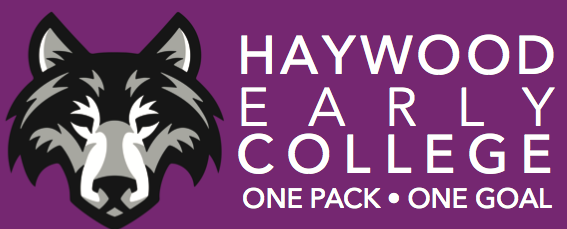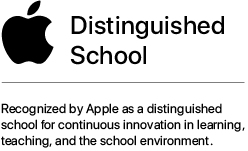English IV Policies and Contacts
12:30 Remind Code
TEXT the number: 81010
TEXT this message: @hooperiv
OR
LINK: www.remind.com/join/hooperiv
Google Classroom Code: qljidwf
Sign up for your class by Tuesday, January 5 to receive info for Wednesday’s class!
Participation
You are asked to attend a daily Google Meet during your scheduled class time. I ask that you always show up for scheduled meets on time, with your video enabled. At times I will ask you to participate in small group Meets (kind of like a little breakout room). I know it’s difficult to get a chance to speak in large group Meets sometimes, so hopefully this will help. But that being said, please try to allow all classmates a chance to share and ask questions. And if you have an idea or a question, speak up! It is more important now than ever that you do.
Availability
Contact me either through email (bsanderson@haywood.k12.nc.us) or Remind. If you need help on my assignments (or any others), please contact me as early as possible so that we can arrange a time.
Required Materials
Your iPad and your Logitech crayon will be essential to your participation in this class, so you need them, charged, every day. When you do not have a charged device ready for class, you are letting the class down. We need you. Don’t let us down.
Late Work
I understand that sometimes things happen outside of our control. If something happens and you can’t get your assignment done, let me know ASAP. However, if you are having weekly crises, we should talk about what is going wrong and how to fix the problem, but it cannot become habitual behavior. You will lose 10 points for every day an assignment is late, and you will have 3 days to turn in the late assignment. I also reserve the right to require your attendance at AEO. Please understand, I am not trying to be punitive, but falling behind really hurts your academic progress.
Absences
If you are going to be absent, it is your responsibility to contact me on the day of your absence through email or Remind so that I can help you get caught up on material you missed. Don’t forget, the class agendas are also available in Google Classroom!
How to Turn in Work
Your assignments should be turned in through Google Classroom. Google Classroom will be where you can find class agendas and all your assigned work. DO NOT FORGET TO HIT SUBMIT when you are finished.
Pledge
I pledge to do my very best to be the teacher you need this semester. Learning involves struggling: struggling with ideas, questions, problems. There will be times when you feel pushed. But, please, if you ever feel that you are struggling to the point of giving up, come and talk to me. I want you to be successful; I want you to grow as a student and a person; I want you to leave this class feeling proud of the work you have done. I pledge to help you in whatever ways I can.
Overview
The study of literature and communication (our job in English IV) is ultimately a study of philosophy, psychology, and rhetoric.
- Look up each bold-faced word and describe how you understand the relationship between English and these disciplines.
Rhetoric
When it comes to communication, we must remember that it is ultimately an ART. The art of communication is called rhetoric. Just as we might learn to analyze techniques and the parts of a painting, we can also learn how to analyze techniques and parts of communication and what it is that makes that communicator effective (or not).
- What techniques can you think of that a speaker or writer might use in order to make his work more effective? You don’t have to remember formal definitions. 😉
Just as a painter might be naturally talented, some of us will have natural talent as rhetoricians (writers, speakers, presenters), but we can all study the ART and become more powerful communicators.
Even if you use a technique intuitively or without considering why you did so, there is a why if it ends up being effective. A studied, careful artist must always have a why, and if she can’t answer that, she must consider her art more deeply.
So, in considering others’ art, we must always be considering the why, and this automatically turns us into analytical thinkers, the highest form of thinking (this is where cool stuff happens, and we’re actually getting smarter!).
As analytical thinkers, we ask things like, why is this the choice that was made? What was the goal of this choice? How effective was this choice for this particular audience and occasion?
In our art (writing, speaking, presenting, communicating) we must begin to consider our why for the choices we make.
- Consider some of the assignments you’ve had in the past (written, spoken, visual presentations, etc). Did you stop and consider your why behind the choices that you made? If you did, explain what you considered and the resulting choices you made. If not, think about how considering those things might have changed and improved your art.
Literature
As students of literature, we also study the philosophical and psychological aspects of these works.
Some of the broad questions we will address as we study literature include:
- What are the factors that affect our lives and make us who we are?
- Can we live outside of these factors? Can we live outside of these factors and find happiness?
- Has the human condition changed in its essential quality/essence, or are we always the same across cultures and time?
- What mechanisms do people use to protect themselves or survive their experiences? What things stop people from achieving happiness?
I hope that as you explore the literature this semester, you will bring your own philosophical and psychological questions to the table.
- Think back to a piece you’ve studied in a high school or college class. What particular philosophical or psychological issue(s) did you find most compelling? Describe the author’s portrayal of this issue and why it was so interesting to you.
PLEASE, do not seek out guidance from study guides (Spark Notes, etc) or random people on the internet. I want this to be our work, our class, our thoughts, and our ideas. I’m not interested in what other people have to say; I want to know what you think.
I am beyond excited to work with you this year, and I can’t wait to see all of the amazing things you’ll do!

